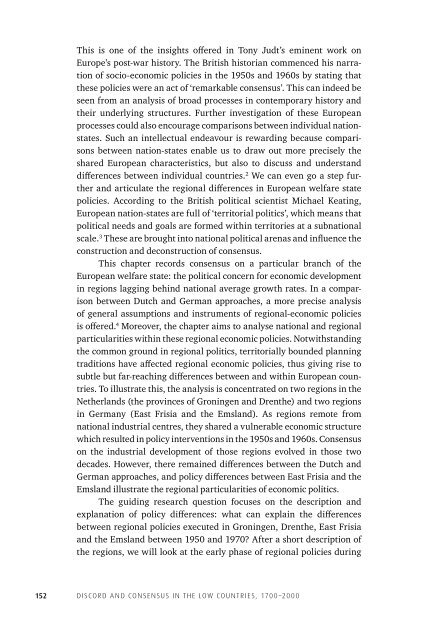Discord Consensus
7aze300jFJo
7aze300jFJo
You also want an ePaper? Increase the reach of your titles
YUMPU automatically turns print PDFs into web optimized ePapers that Google loves.
This is one of the insights offered in Tony Judt’s eminent work on<br />
Europe’s post-war history. The British historian commenced his narration<br />
of socio-economic policies in the 1950s and 1960s by stating that<br />
these policies were an act of ‘remarkable consensus’. This can indeed be<br />
seen from an analysis of broad processes in contemporary history and<br />
their underlying structures. Further investigation of these European<br />
processes could also encourage comparisons between individual nation-<br />
states. Such an intellectual endeavour is rewarding because comparisons<br />
between nation-states enable us to draw out more precisely the<br />
shared European characteristics, but also to discuss and understand<br />
differences between individual countries. 2 We can even go a step further<br />
and articulate the regional differences in European welfare state<br />
policies. According to the British political scientist Michael Keating,<br />
European nation-states are full of ‘territorial politics’, which means that<br />
political needs and goals are formed within territories at a subnational<br />
scale. 3 These are brought into national political arenas and influence the<br />
construction and deconstruction of consensus.<br />
This chapter records consensus on a particular branch of the<br />
European welfare state: the political concern for economic development<br />
in regions lagging behind national average growth rates. In a comparison<br />
between Dutch and German approaches, a more precise analysis<br />
of general assumptions and instruments of regional-economic policies<br />
is offered. 4 Moreover, the chapter aims to analyse national and regional<br />
particularities within these regional economic policies. Notwithstanding<br />
the common ground in regional politics, territorially bounded planning<br />
traditions have affected regional economic policies, thus giving rise to<br />
subtle but far-reaching differences between and within European countries.<br />
To illustrate this, the analysis is concentrated on two regions in the<br />
Netherlands (the provinces of Groningen and Drenthe) and two regions<br />
in Germany (East Frisia and the Emsland). As regions remote from<br />
national industrial centres, they shared a vulnerable economic structure<br />
which resulted in policy interventions in the 1950s and 1960s. <strong>Consensus</strong><br />
on the industrial development of those regions evolved in those two<br />
decades. However, there remained differences between the Dutch and<br />
German approaches, and policy differences between East Frisia and the<br />
Emsland illustrate the regional particularities of economic politics.<br />
The guiding research question focuses on the description and<br />
explanation of policy differences: what can explain the differences<br />
between regional policies executed in Groningen, Drenthe, East Frisia<br />
and the Emsland between 1950 and 1970? After a short description of<br />
the regions, we will look at the early phase of regional policies during<br />
152<br />
DISCORD AND CONSENSUS IN THE LOW COUNTRIES, 1700–2000


